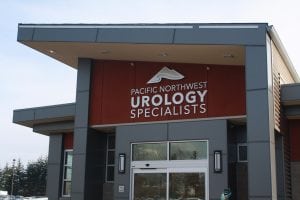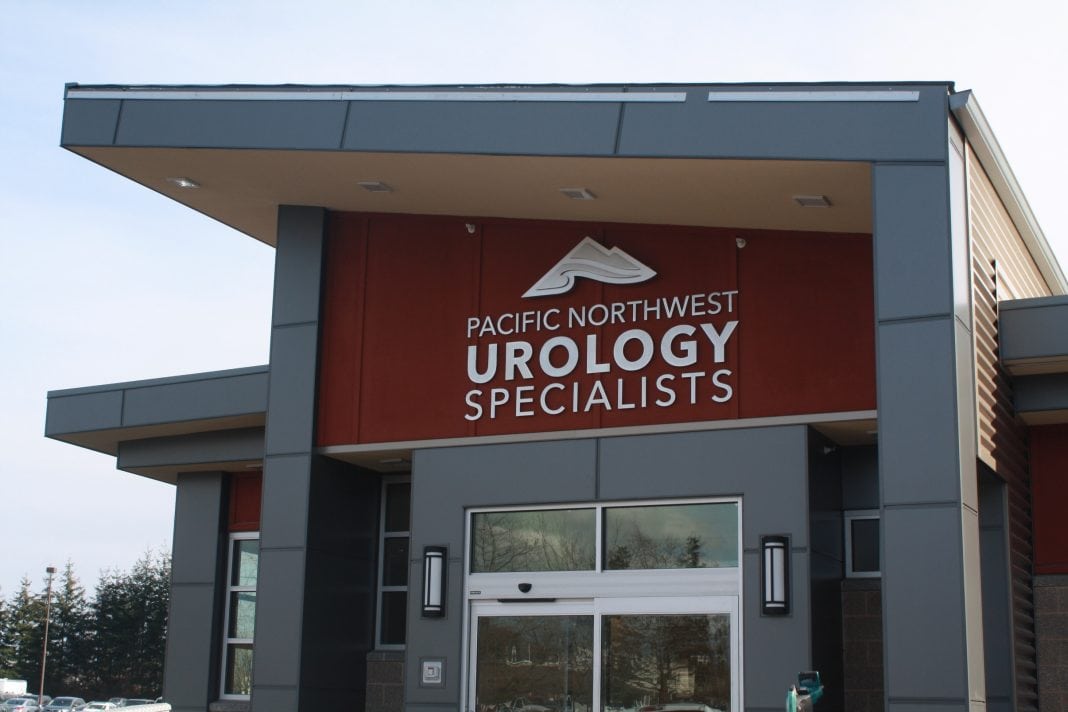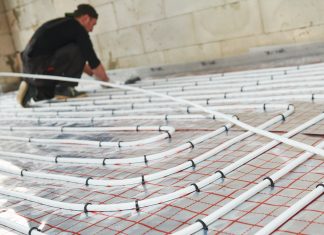Doctor Daniel Reznicek wants men to know they shouldn’t be ashamed about having intimate health issues. Reznicek, a specialist at Pacific Northwest Urology Specialists, treats erectile dysfunction (ED) and other urological issues like Benign Prostatic Hyperplasia (BPH), otherwise known as an enlarged prostate.

“It shouldn’t be embarrassing,” he says of men suffering from sexual health issues. “You haven’t lost your manhood. This is a problem that can be easily fixed.”
Houston, We Have a (Common) Problem
Erectile dysfunction is more common than people might think. Large population studies from Harvard University show about 50 percent of men, age 50 and older, will experience some form of erectile dysfunction in their lifetime. That chance increases with age, but even men in their 20s and 30s are not immune from it.
Historically, ED was an embarrassing issue for which many men didn’t seek treatment. But with the advent of medications like Viagra and Cialis (and their hard-to-ignore advertising), awareness of solutions has vastly improved. Even so, Reznicek says it still takes some men years to seek help. One common misconception, he says, is that pills are the only way to treat it.
“A lot of guys think, ‘If the Viagra’s not working, I’ll never have an erection again,’” Reznicek says. “That’s not the case.”
If oral medications fail, other options involving minimally invasive surgeries can be used. Another treatment avenue is a penile prosthesis, a device permanently implanted within the penis that helps produce erections.
It’s important to seek help as soon as possible, Reznicek says, as the psychological effects of ED don’t improve men’s lives; it can affect how they view themselves, their relationships and even whether they’ll actually seek treatment.
A downward spiral of concern about maintaining erections during intercourse can lead to a loss of enjoyment in sex, which can then lead to even more difficulty in maintaining erections. Erectile dysfunction can be caused by many factors, including health problems like diabetes, hypertension and vascular problems, prior trauma, or even anti-depressant and blood pressure medication usage.
Having a (Low) T Party

Similar to ED in commonality, low testosterone is also a concern for many men. The primary male sex hormone, testosterone naturally decreases with age after peaking in your 20s. “Low T” affects some men more than others, and while having ED is an obvious issue, symptoms of “Low T” are often subtler. They include decreased libido, fatigue, depression and daytime sleepiness. Sometimes, ED is also a symptom.
“Low T” can be caused by different issues, including impaired production of the hormone in the brain or testicles. Cancer treatments, HIV, and diabetes can also cause the condition. Hormone replacement therapy can help and is given in a number of forms, including injection, patch and implantable pellets.
Whether it’s “Low T” or ED, Reznicek stresses the importance of coming in as soon as problems surface. Some men don’t seek help until it begins to hurt their relationship with a partner, and sometimes things can’t be salvaged.
“I’ve certainly had guys who told me they’d had partners leave because they have an issue,” he says. “And that’s crushing.”
Patients who visit the urology clinic fill out standardized question forms, allowing doctors to diagnose mild, moderate or severe forms of sexual dysfunction. If medication causes an issue, the urologist works with a patient’s primary care doctor or psychiatrist to figure out the best course of action.
Prostate Pros

Benign Prostatic Hyperplasia, or BPH, is non-cancerous prostate growth affecting almost all men, to varying degrees, as they age. In extreme cases, prostates can grow to the size of softballs. About half of men over 50 have symptoms of BPH, which include frequent urination, slow urine flow, and difficulty emptying the bladder. Almost 90 percent of men over 80 will experience such symptoms.
“Prostates are kind of like ears,” Reznicek says. “They grow with time. So, at some point, they will get large and cause a problem, depending on your lifespan.”
When the prostate enlarges, it grows both externally and internally. Because the prostate gland sits underneath the bladder and the urethra goes through the prostate, it can put pressure on both the bladder and urethra. The bladder may then work harder to empty, causing many men to have irritating issues.
If men don’t come in themselves for problems, Reznicek says he often sees their partners bring them in, tired of their husbands or boyfriends waking them up with frequent, middle of the night bathroom trips.
Treatments for the condition have come a long way since the 1800s, when many men hid catheters inside their hats. Now there are numerous easy fixes, from low-risk medications to minimally-invasive procedures, the latter of which can often be done under local anesthetic.
In addition to these issues, Pacific Northwest Urology Specialists perform many common urological procedures for older men, including kidney stones and cancer procedures involving the kidney, prostate or bladder. Most primary care physicians can do general prostate exams, and cancer screenings generally begin around 50 to 55, Reznicek says.
Regardless of the problem you’re experiencing, Reznicek is adamant: the sooner you seek help, the sooner you can put your problem behind you.
For more information or to schedule an appointment, visit Pacific Northwest Urology Specialists’ website. And keep up to date with their official Facebook page, YouTube channel and Instagram account.
Sponsored










































